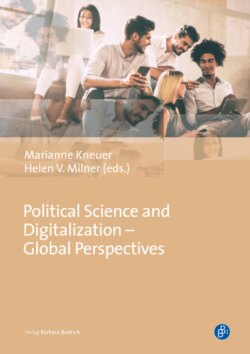Читать книгу Political Science and Digitalization - Global Perspectives - Группа авторов - Страница 24
На сайте Литреса книга снята с продажи.
4 Conclusion
ОглавлениеAs stated earlier, political science in Brazil has now completed fifty years of professional academic work in Brazil. There have been advances in post-graduate studies with regard to undergraduate programs and the formation of academic associations, as well as the institutional assessment that has been conducted by CAPES since 1976. This has been assisted by institutional incentives and has led to the formatting of a model for scientific output, that is set in parameters such as scientific research as a substitute for a dependence on essays and a dilettante´s approach, formal rigor and the peer review process. The results of this disciplinary institutionalization can be measured through an exponential growth of PhD students with a capacity for being employed as academic researchers or policy-makers in the national public adminsistration. It is also reflected in the índices for scientific output, which in recent years have surpassed the levels attained by the community of political scientists in the rest of Latin America.
The institutional and geographic expansion of Brazilian political science was characterized by strong regional asymmetry. Proportion close to half of the Center Programs is located in the Southeast region (46.5 %), with a significant proportion in the South region (20.9 %) and increasing in recent years in the Northeast. There is a more rarefied presence in the Midwest (particularly outside the Federal District), and especially in the North, where the Area has only one Center and no PhD.. Parallel, there is a limited national geographical circulation, evidenced by about 60 % of doctors reaching professional positions in the same state of doctoral degree. In the same direction, it should be pointed out, also, a reduced migration from the South / Southeast regions to the North, Northeast and Central West. Similarly, rates of doctoral training have been lower than in other areas.
In view of this situation, the use of e-learning resources should be an effective alternative for the territorial expansion and increase in the training of new generations of PhDs and researchers in political science. However, the experiences and initiatives have been residual. The emphasis of government programs on the use of digital resources for training basic education teachers, vocational market with regional recruitment, and the low quality of e-learning-based courses implemented by private institutions has inhibited more aggressive strategies of educational use distance learning by political scientists.
